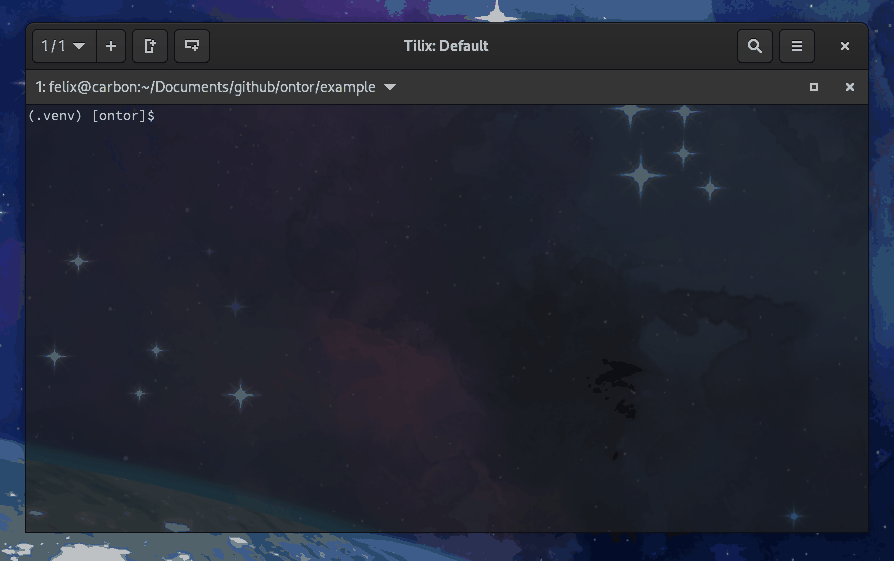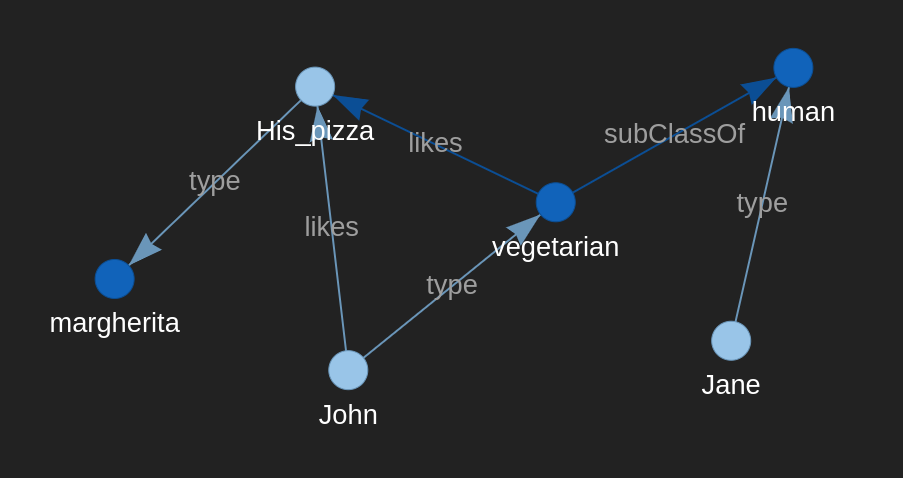ontor - an ontology editor based on Owlready2
Project description

ONTology editOR (ontor)
ontology editor built on Owlready2
functionality
each instance of the ontor class represents an individual ontology and provides support for:
- creating new, loading existing, and saving ontologies
- modifying ontologies:
- import other ontologies
- simply extract information such as axioms and class restrictions
- insert classes, properties, instances, relations, and restrictions
- insert general class axioms using a workaround for Owlready2
- delete classes, properties, instances, relations, and restrictions but preserve the ontology's structure by reassigning subclasses and instances appropriately
- reasoning over ontologies and debugging by interactively deleting problematic axioms
- visualizing the entire ontology or selected parts thereof
ontor provides a tuple based syntax with JSON and CSV support for ontology editing to facilitate focusing on the ontology's content
requirements and installation
- Python 3.9+
- install ontor using pip
- from PyPI:
pip install ontor - from GitHub, in editable mode:
pip install -e .
- from PyPI:
- generate documentation via sphinx using the makefile in docs/:
make html
demo
the directory example/ includes a demo application inspired by Protégé's pizza example
general class axioms
in addition to class axioms, General Class Axioms (GCAs) can express more complex statements - the generic axioms are equivalented using helper classes
in the example, a uniform price of 5 is set for all pizzas with seafood toppings without making use of an explicitly defined class for these pizzas:\
[
["has_topping",null,"min",1,"seafood_topping",null,null,null,null,null,null,null,true],
["has_price",null,"value",null,null,"float",null,null,5,null,null,null,true]
]
this allows a reasoner to infer that the price for all instances of seafood_pizza as well as for the instance Another_pizza is 5
interactive debugging
interactively debug an ontology
in the example: ontor3.debug_onto()

visualization
visualize selected instances, classes, and properties in a given radius around a focus node; e.g., all nodes in a radius of two relations around the node "John"
in the example: ontor3.visualize(classes=["human", "pizza"], properties=["likes", "diameter_in_cm"], focusnode="John", radius=2)

workflow
When creating ontologies from scratch, note that some functions have to be called in a specific order:
- add_taxo - the taxonomy has to be created first to ensure that all classes are defined, which are required by the properties, axioms, and individuals
- add_ops, add_dps - properties must be defined before axioms can be specified
- add_axioms, add_gcas, add_instances - axioms and instances can only be added when all the necessary classes and properties have been defined
license
GPL v3.0
contact
Felix Ocker - felix.ocker@googlemail.com
Project details
Release history Release notifications | RSS feed
Download files
Download the file for your platform. If you're not sure which to choose, learn more about installing packages.

















